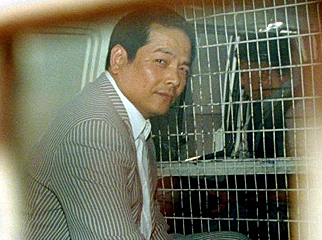 Wan Kuok-koi, aka ‘Broken Tooth Koi,’ the former triad leader who was released from Macau’s Coloane Prison in December after serving over 14 years on loansharking, criminal association and illegal gambling charges, is planning a return to Macau’s VIP gambling business.
Wan Kuok-koi, aka ‘Broken Tooth Koi,’ the former triad leader who was released from Macau’s Coloane Prison in December after serving over 14 years on loansharking, criminal association and illegal gambling charges, is planning a return to Macau’s VIP gambling business.
Wan told Hong Kong’s Next magazine that “of course” he would resume his role as VIP gaming room operator, noting that “there will be a new casino hall open next month.” However, the former boss of the infamous 14k triad cautioned that he did not intend to manage that unidentified gaming operation personally. “There will not be any ceremonies, just to be low profile.” A separate Hong Kong media outlet, Eastweek magazine, suggested Wan was being financially backed by unspecified mainland investors.
There were fears that Wan’s release would spark a return to Macau’s bad old days, in which triads routinely exchanged gunfire on the streets over control of the city’s junket business. Those fears appeared justified after Wan’s former rival and current Amax Holdings junket boss Ng Man-sun was attacked by thugs at the New Century Hotel last June. But Wan says his time in prison taught him to “let go” of past rivalries and wondered why on earth his former enemies would seek any kind of revenge on him “after their huge gain” in his absence.
When Wan began his stint in stripes, Macau was still under Stanley Ho’s monopoly control. Since then, three American casino firms – Las Vegas Sands, Wynn Resorts and MGM Resorts – have taken root in (and, some would argue, transformed) Macau. Nevada Gaming Control Board chief A.G. Burnett recently told Congress that Macau’s triad activity had decreased since the US firms opened shop in the world’s top gambling hot spot, but Wan believes this benefit has come at the expense of national pride. “There is no reason for foreign enterprises to occupy the majority of the market in a place that is mostly occupied by Chinese.” Wan suggested that the US firms’ entry into the market was “surely good for development, but Chinese people should have a bigger share.”
Wan’s belief in a Chinese-dominated Macau was reflected in his half-hearted attempts at learning the native tongue of his new western competitors. Wan said he’d planned to learn one word of English per day, figuring that the length of his sentence would ensure fluency upon his release. But his would-be linguistic instructor “could not speak Chinese,” which put a crimp in his plans to be able to tell Sheldon Adelson where to go in no uncertain terms.






